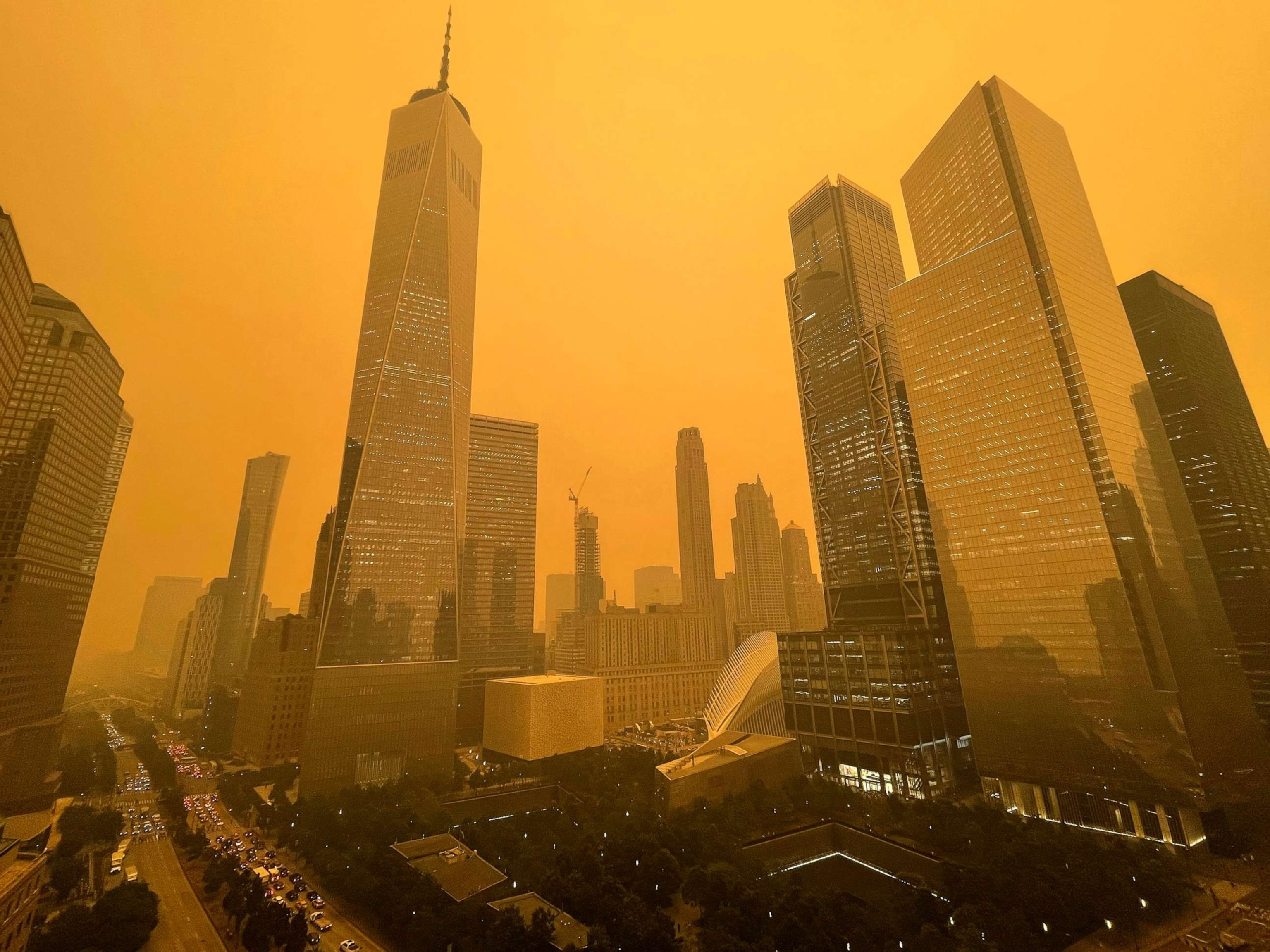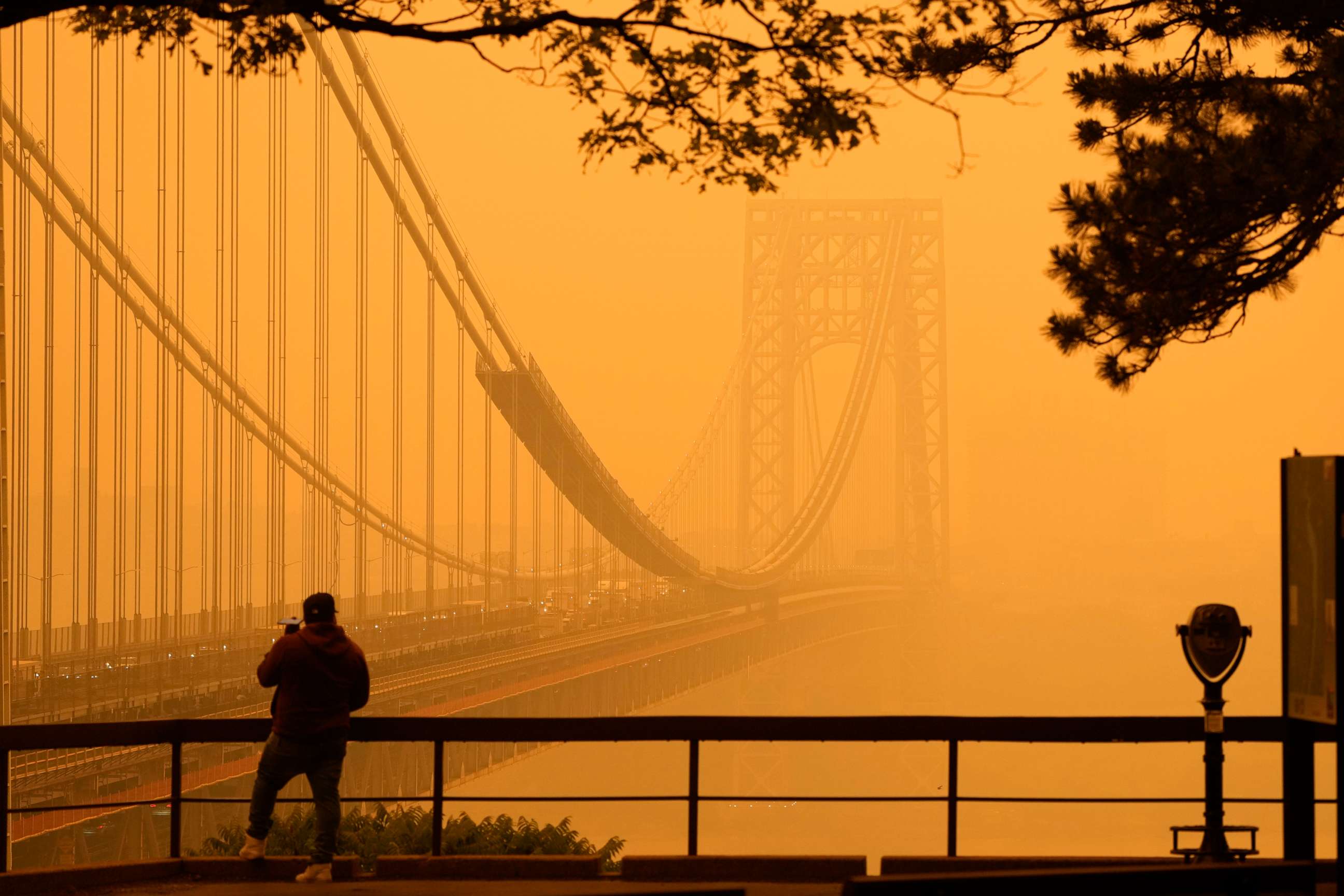How smoke blanketing Northeast from Canadian wildfires can impact our mental health
Exposure to wildfires and smoke may increase rates of anxiety and depression.
Smoke from the record-breaking Canadian wildfires continues to blanket much of the Northeast and impact air quality.
Smoke plumes made up of fine particles and toxic gases can negatively impact on our physical health, causing damage to the lungs and heart and exacerbating underlying conditions, such as asthma.
However, experts said the dense fog and hazy conditions, like those seen in areas like New York City, can also affect our mental health and well-being.
"There are studies showing that there's increased levels of PTSD, depression and anxiety after wildfires," Dr. Gaurab Basu, a primary care physician and health equity fellow at Harvard's Center for Climate, Health, and the Global Environment, told ABC News. "So of course, there's the trauma of the impacts of wildfires on communities, homes, schools."

"And so this is a pretty critical area for us to understand in terms of the health impacts, which are not only physical but also mental," Basu added.
A December 2022 review published in the journal “BMC Public Health” analyzed 19 studies and found exposure to mostly chronic and persistent wildfire smoke can impact mental health, although the study reviewers noted that more research is needed.
In addition to study subjects reporting anxiety and depression, being confined indoors due to wildfire smoke led to feelings of isolation, stress and frustration, the studies showed. "A diversity of emotional impacts and responses associated with persistent smoke events including worry, stress, guilt, depression, lack of motivation, hopelessness, and helplessness," another study in the analysis found.
Wildfire smoke and poor air quality can also exacerbate existing mental health conditions in people, Basu said.
"Many of my patients who have mental health conditions are certainly more prone [to] -- and, frankly, kind of appropriately -- having a reaction to traumatic events that are happening around them," Basu said. "It causes mental health distress for any of us that could experience this, but certainly with people with underlying mental health issues, we can expect that people would have a greater impact on their mental well-being."
Research is being done to understand how wildfire smoke impacts brain and cognitive function. One June 2022 study found wildfire smoke exposure was associated with decreases in attention. While early studies suggest that a link could exist but highlight that more research is needed.

Dr. Jyoti Mishra, associate professor in the department of psychiatry at UC San Diego School of Medicine, told ABC News she is studying if smoke could affect the brain and in turn lead to mental health disorders.
"Now we're seeing this increasing frequency and intensity of these same type of disasters, and that's causing much significant, undoubtedly, more mental health stress and clinical symptoms, and our work and that of others has shown that," she said.
Experts recommend that if you are experiencing anxiety, a depressive episode or other disorder symptoms, it's important to recognize it and seek help if needed. Free help is always available by calling or texting 9-8-8.
"There's a vulnerability that happens when there are disasters and wildfires -- even at a distance," Dr. Vickie Mays, a professor of psychology at UCLA College of Letters and Sciences, told ABC News. "You need to kind of just check in with yourself and say, 'Wow, am I having a response to this? If so, do I need to do something about this?' Don't just ignore it."




